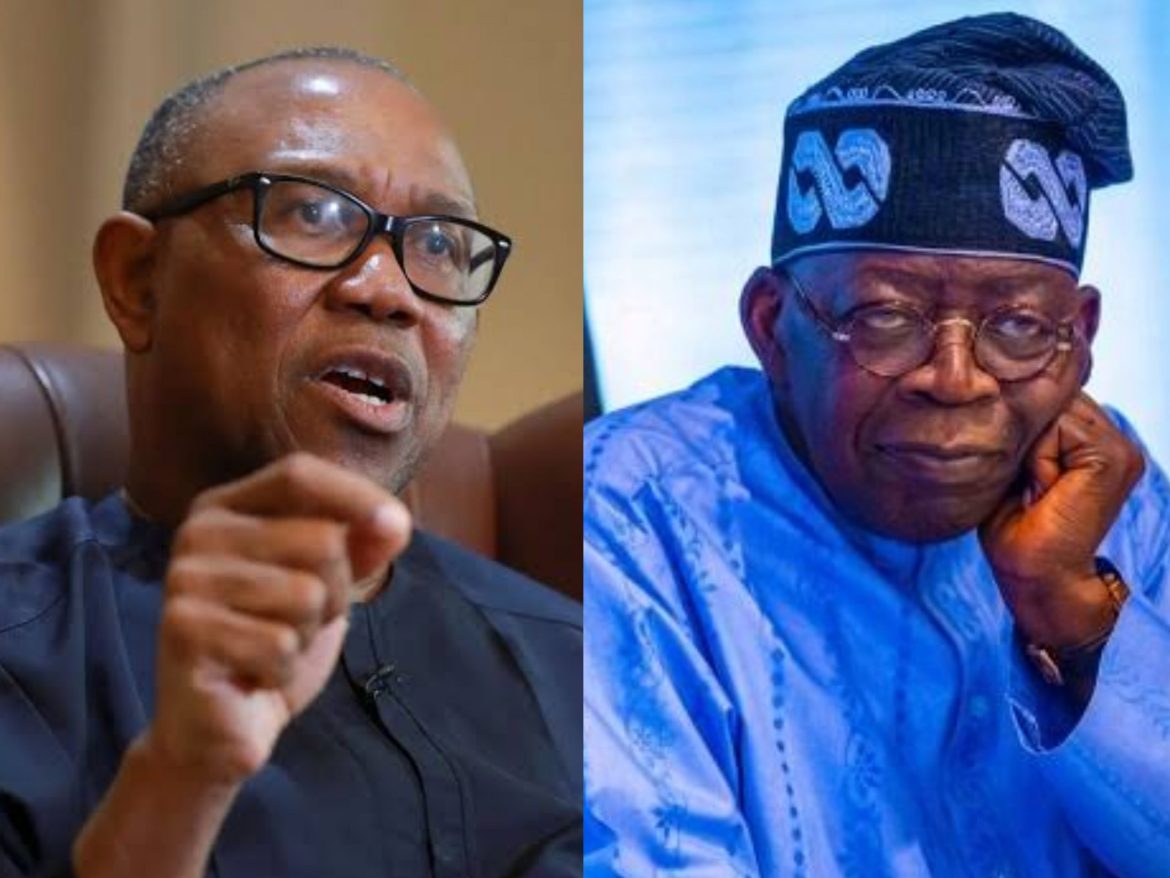775
By Lizzy Chirkpi
The 2023 presidential candidate of the Labour Party, Peter Obi, has raised alarm over Nigeria’s rapid debt crisis, following the National Assembly’s recent approval of additional external and domestic borrowing requests submitted by the President Bola Tinubu-led government.
In a statement shared on his verified X (formerly Twitter) account on Tuesday, Obi warned that the new borrowing plan could push Nigeria’s public debt beyond ₦200 trillion by the end of 2025, placing the nation’s fiscal future on an unsustainable and dangerous trajectory.
“Within an already existing public debt of about ₦149.39 trillion as at the first quarter of 2025, adding the newly approved loans of about ₦37.2 trillion brings our total debt to approximately ₦187 trillion. At this rate, we may cross ₦200 trillion before the year ends,” Obi warned.
Recall that last week, the Senate approved for President Tinubu’s administration to secure $21 billion, €2.2 billion, and ¥15 billion in new external loans, in addition to issuing a ₦750.98 billion domestic bond and receiving a €65 million grant. The government claims these funds are earmarked for infrastructure, security, agriculture, pension liabilities, and social investment programs.
However, Obi insists the government’s borrowing spree lacks transparency and has yet to yield tangible improvements in the lives of ordinary Nigerians.
“We are accumulating exponential levels of unsustainable debt with little or nothing to show for it in critical areas like education, healthcare, electricity, and security,” he added.
Obi further expressed concern about Nigeria’s deteriorating debt-to-GDP ratio, calling it the highest in the nation’s history. He explained that based on the pre-rebased GDP of ₦269.2 trillion (roughly $180 billion), the current debt of ₦187 trillion represents nearly 70% of GDP. Even after the GDP was updated to ₦372.8 trillion ($243.7 billion), the ratio still hovers above 50% a level considered risky for emerging economies.
While federal spending on security has grown significantly from ₦2.98 trillion in 2023 to ₦4.91 trillion in 2025 Obi said insecurity has worsened. He cited data showing 10,217 deaths and 672 villages sacked across Nigeria between May 2023 and May 2025, pointing to a disconnect between budgetary allocations and real-world impact.
“Despite higher spending, Nigerians are not safer. The same pattern repeats in healthcare, education, and power,” Obi noted.
According to him, basic infrastructure continues to deteriorate, with only about 60,000 km of Nigeria’s 195,000 km road network paved, leaving over two-thirds in poor or impassable condition. Similarly, national electricity generation remains under 5,000 megawatts, far below what is needed for Nigeria’s 200 million-plus population.
Obi highlighted a worsening poverty and hunger crisis, noting that 133 million Nigerians 63% of the population are now classified as multi-dimensionally poor. He referenced a recent report from Médecins Sans Frontières (MSF), which revealed that 652 children have died from malnutrition in Northern Nigeria in the past six months, with Katsina State among the most affected.
“This is a country blessed with enormous resources, yet millions go to bed hungry,” Obi said. “A persistent deficiency in leadership has thrown the majority of our citizens into increasing poverty.”
While acknowledging that borrowing is not inherently wrong, Obi argued that loans must be targeted at productive, high-impact investments with measurable outcomes. He accused the government of fiscal indiscipline, warning that its current approach is mortgaging the future of Nigerian children.
“Borrowing must be tied to transparent and accountable use, not wasted or looted,” Obi insisted. “Every kobo borrowed must deliver value. Otherwise, we are simply sinking deeper into debt with no clear way out.”
He called on the government to urgently cut the cost of governance, block revenue leakages, and prioritize human capital development particularly in health, education, and job creation.
“It is time to stop this fiscal recklessness,” Obi declared. “We must build a new Nigeria where leadership is responsible, development is people-centered, and every expenditure delivers results.”
Nigeria’s debt profile under he watch of President Tinubu is worrisome.
Public Debt in May 2023: ₦87.38 trillion
Debt as of Q1 2025: ₦149.39 trillion
Newly Approved Loans (July 2025): ₦37.2 trillion
Current Total Debt Estimate: ₦187 trillion
Estimated Debt by End of 2025: ₦200 trillion
Rebased GDP: ₦372.8 trillion
Debt-to-GDP Ratio: 50.16%



